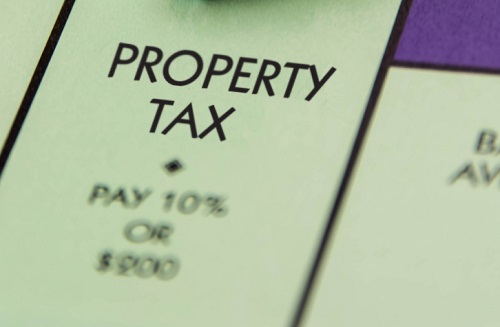✕

Column: industry Tag: hotel,property tax bills Published: 2016-07-29 10:10 Source: Author:

Hoteliers stand to gain considerably from adopting a proactive approach to property tax assessments. While assessments are generally lowered or remain the same after the appeal process, reviewing tax assessments on a regular basis is a low-risk, high-reward proposition, sources said.
Still, it’s not always a high priority for owners without a current plan in place. Sources said that can be a very costly mistake, especially since about 40% of a hotel’s cost of occupancy reportedly comes from property taxes.
“A lot of owners have a mentality of managing that expense after the fact, so they wait to get a notice of assessment, then decide if it’s too high or low,” said Bernice Dowell, president of Cynsur, a hotel property and transfer tax consultancy. “But the one thing I would emphasize is to think in terms of the line item on your (profit-and-loss statement) as something that can be managed more proactively to figure out what you can do as an owner to put yourself in a situation where you get good assessments to start with.”
The need to be proactive
It’s an uphill, but necessary, battle from the start. Commercial property taxes normally fall under state law and are administered at the county level, and sources said there is a wide range of methods, personnel and professional vigor employed by local assessors.
In many cases, assessors are overburdened with properties to appraise and aren’t particularly experienced in hotel assets, so it is critical to ensure that a hotel’s official tax value is accurate and remains that way.
“Generally the people making the assessments are all career administrators who really aren’t passionate about it,” said Doug Collins, president of DC Hospitality. “There’s a lot of turnover, and they have a lot of big properties to assess, so they have their template, they put in the numbers, and it’s kind of an impassionate thing. Many times they don’t take the time to dig deeper to get to the proper evaluation. They’re not going to be as passionate about your property as you are.”
There is also good reason to question the core assessment methodology being used, which can vary between a comp-based mass appraisal approach and a pure income method, or in the best-case scenario, an analysis that considers income yet makes appropriate adjustments for crucial hotel factors like expenses and both tangible and intangible assets. It’s not a task hoteliers are often able to easily do themselves, either.
“When you look at a hotel from a property tax perspective, if somebody paid $20 million as a transaction price and they bought the hotel lock, stock and barrel and (are) operating and in place, you cannot assume that $20 million is the value of the real estate, because there are all these other things that go into making a hotel a hotel,” said Anne Sheehan, CEO of Real Property Tax Advisors. “You have to be knowledgeable, and you have to know how to segregate out these intangible components from the taxable real estate and the taxable personal property. That’s not something the CFO of a hotel company can pull out of his books.”
Finding the right partners
Calculating that real value is where hotel tax consultants come into play. Just as hotels are unique among other commercial assets, tax advisors for hotels need to be specialists as well, due to the complicated analysis required to properly assess tax value, sources said. Hotel valuation expertise should be first and foremost among any tax consultants that owners consider hiring for an appeal.
“If you’re hiring outside consultants to help you, just make sure they have specific hotel experience and question them about their general familiarity,” Dowell said. “A few questions like, ‘How would you handle it if the assessor’s not allowing a reserve for replacement, or if the assessor is lopping off 10% of our expenses?’ If the assessors are using an income approach to value, you have to be able to understand it yourself and not just accept what the assessor’s doing.”
The appeal process
In many counties, the assessment can be appealed every three years, with the process progressing through several stages if satisfaction isn’t achieved in the early going. Ultimately, the appeal might need to be decided in court, if all other measures have failed.
“If we appeal and go to the local level, we go to the board,” Sheehan said. “If the board doesn’t give us the number we want, we have a choice: We can either accept what we did get, or we can move on to a superior court or state tax court. That’s usually the three choices you have.”
Unfortunately, many owners simply give up if the appeal doesn’t succeed at the local level, rather than incur the cost and potential hassle of a legal battle. That’s another mistake, sources said, since the potential windfall from a successful appeal far outweighs the associated costs. In the appeal process, sometimes simply putting in the time, effort and money to dispute an assessment is all that counts, even if it means possibly ending up in court.
“It depends on the stakes involved,” Collins said. “If you think the assessment is way off base, then it may very well be worth it. You don’t want to go to a lawsuit, and neither does the municipality. But the threat of a lawsuit many times is all that’s necessary to perhaps get some more attention.”
Source: Hotel News Now
Previous:Waldorf Astoria to offer ultimate golf experiences
Next:Willy Wonka's chocolate factory is the blueprint for the future of retail
Hot key words
Hot Products
Popular Vendors